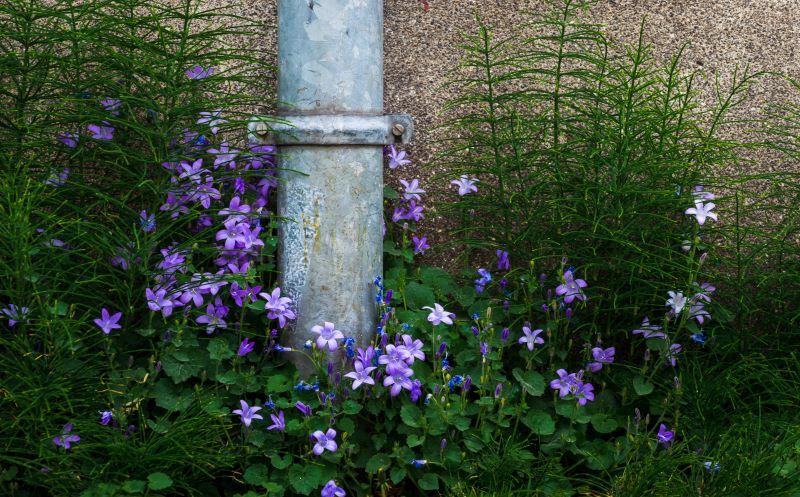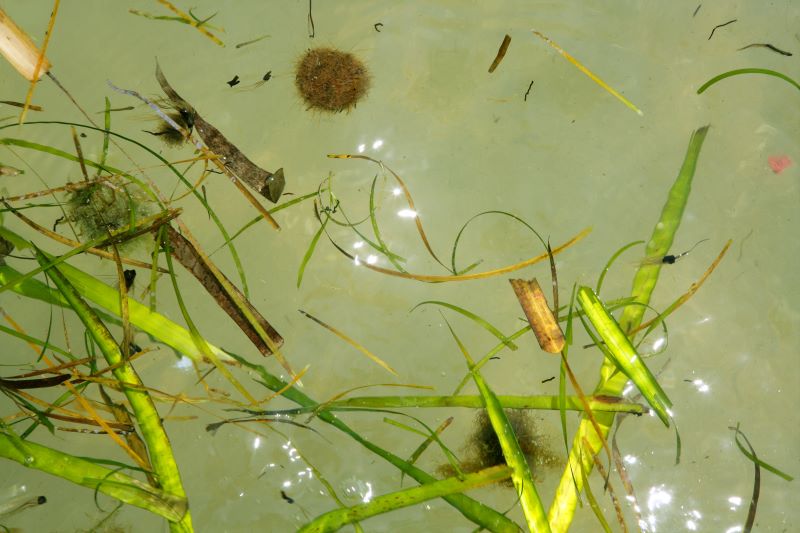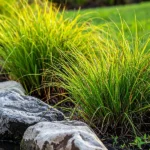Stormwater runoff is one of the leading causes of water pollution in Florida. When it rains, water flows over driveways, streets, and lawns, picking up pollutants like fertilizers, oil, and trash, and eventually carrying them into Sarasota’s waterways. The Florida-Friendly Landscaping™ principle of reducing stormwater runoff emphasizes landscaping strategies that allow water to soak into the ground, filter out pollutants, and protect our environment. Here’s how you can make a difference.
The Impact of Stormwater Runoff
When stormwater isn’t managed properly, it can lead to flooding, erosion, and contamination of natural water bodies. Pollutants carried by runoff harm aquatic life, fuel harmful algal blooms, and degrade water quality. By implementing runoff-reducing practices, you can help keep Sarasota’s waterways clean and beautiful
Strategies to Reduce Stormwater Runoff
1. Install Rain Gardens
Rain gardens are shallow depressions filled with deep-rooted native plants that capture and filter stormwater.
How They Work: Rain gardens collect rainwater from roofs, driveways, or lawns and let it slowly seep into the soil. Native plants like blue flag iris and swamp milkweed help absorb and clean the water.
Placement Tips: Locate your rain garden at least 10 feet from your home’s foundation and in a natural low spot where water collects
2. Use Permeable Pavers
Traditional concrete and asphalt surfaces create runoff because they don’t absorb water. Permeable pavers, gravel, or porous concrete are excellent alternatives.
Benefits: Permeable surfaces allow water to pass through and infiltrate the soil, reducing runoff and recharging groundwater.
Design Ideas: Use permeable pavers for walkways, patios, or driveways to minimize impermeable surfaces on your property
3. Direct Downspouts Wisely

Make sure your home’s downspouts are not directing water onto paved surfaces.
Simple Fixes: Redirect downspouts to drain into vegetated areas or rain barrels. This helps water soak into the soil rather than running off into storm drains
Rain Barrels: Collect rainwater in barrels and use it to water your garden during dry periods. Make sure to cover your barrels to prevent mosquito breeding.
Enhance Soil and Plant Health
1. Amend Soil with Organic Matter
Healthy, well-amended soil absorbs more water and reduces runoff.
Compost and Mulch: Adding compost and mulch increases the soil’s ability to retain moisture and prevents erosion. Organic matter also helps plants grow stronger, making them more effective at filtering water
2. Plant Native Vegetation
Native plants have deep root systems that help hold soil in place and improve water infiltration.
Great Choices: Sea oats, dune sunflower, and muhly grass are excellent for erosion control and filtering water.
Lawn Alternatives: Consider reducing lawn areas and replacing them with native groundcovers or wildflower meadows to further reduce runoff and increase biodiversity
Manage Erosion and Protect Waterways
1. Use Mulch and Groundcovers
Cover bare soil with mulch or dense groundcovers to prevent erosion, especially on slopes.
Types of Mulch: Organic mulches like pine bark or leaf litter are best for soil health. They help water infiltrate slowly and add nutrients to the soil as they decompose
2. Create Swales and Berms
Swales are shallow, vegetated channels that direct water flow, while berms are raised areas that block or redirect water.
Design Tip: Use swales to direct runoff to your rain garden or to areas where water can soak into the soil. Berms can be strategically placed to divert water from paved areas
Conclusion
Reducing stormwater runoff is essential for protecting Sarasota’s precious water resources. By incorporating rain gardens, permeable pavers, and native plants, you can manage rainwater naturally and keep our environment healthy. Visit Troy’s Tropics to find Florida-friendly plants and materials for your eco-friendly landscaping projects. Join us for our workshops to learn more about creating a landscape that supports water conservation and wildlife!






